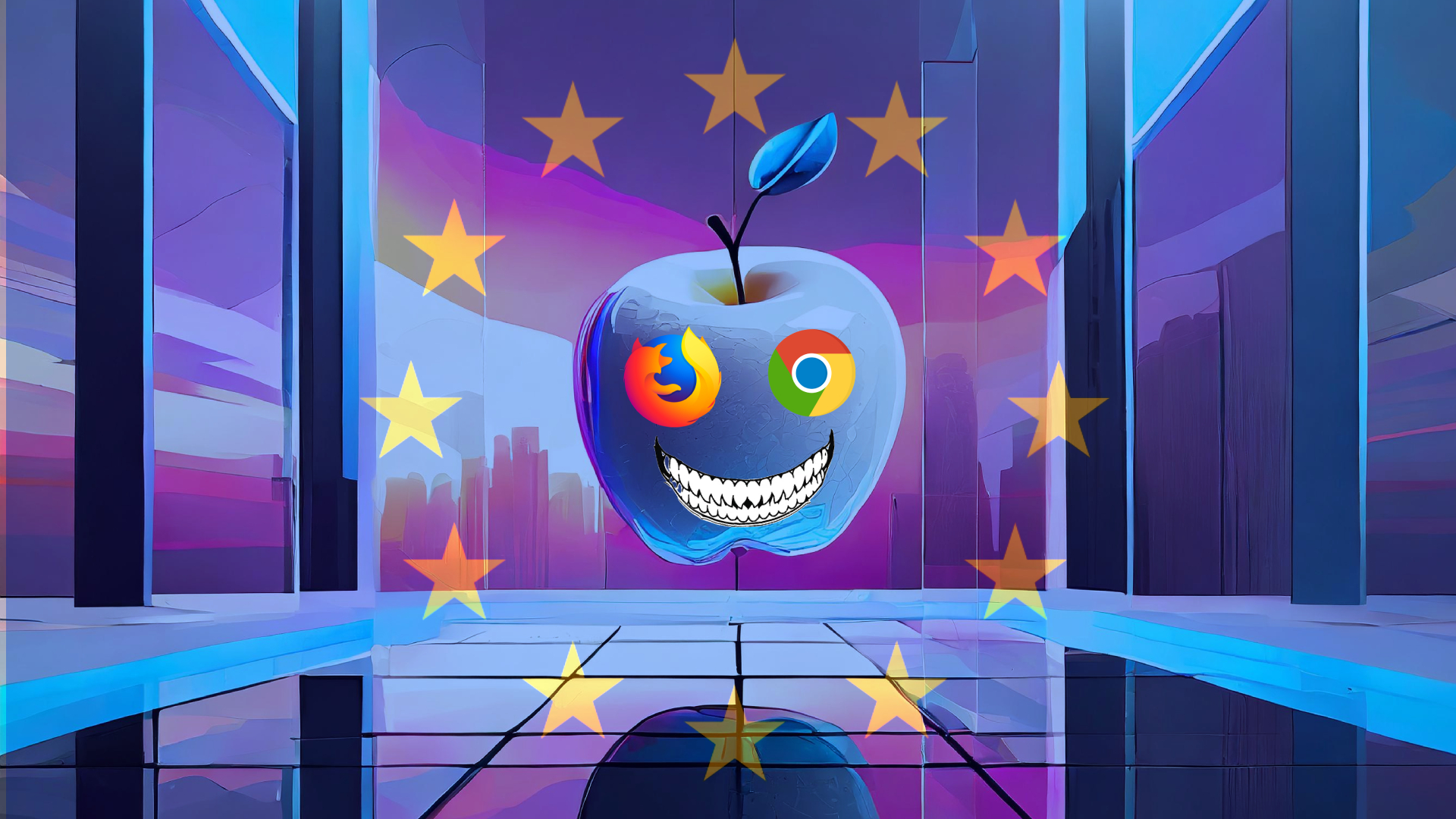Google and others push for iPhone browser rule change — but who really benefits?
Apple is once again being pushed to change its ways

Sign up to receive The Snapshot, a free special dispatch from Laptop Mag, in your inbox.
You are now subscribed
Your newsletter sign-up was successful
The guarded castle walls of Apple's iOS ecosystem extend to web browsers, raising concerns about limited user choice and stagnant innovation. As reported in Ars Technica, while "alternative" browsers like Chrome and Firefox exist, they're essentially Safari skins bound by Apple's WebKit engine. As Google's Chrome VP Parisa Tabriz aptly summarized, this reflects "an overly restrictive strategy" lacking meaningful choices for developers.
The upcoming EU regulations (DMA AKA Digital Markets Act) requiring browser choice may improve the situation. These regulations will force Apple to allow users to choose from various device browsers. This could lead to more innovation and competition in the iOS browser market.
Beyond Safari Skins: The Quest for True Choice
Downloading Chrome or Firefox on iOS might offer a different UI and feature palette, but under the hood, it's all Apple's WebKit. Every browser inherits its bugs and limited feature support, prompting some developers to dub Safari "the new Internet Explorer." While Safari has improved recently, features like push notifications arrived seven years behind Google and Mozilla, highlighting the innovation gap.
The Chrome Conundrum: More Competition or Monoculture?
More competition sounds good, but the reality might paint a different picture. In the iOS browser space, Safari and by proxy WebKit's main contender likely comes from Chrome, wielding the significant resources and reach of Google. While Chrome might offer better feature support, it comes with a trade-off: a built-in tracking system raising privacy concerns. Safari, on the other hand, boasts a stronger privacy story.
There's also the fact that the Chromium foundation Google Chrome is built on is a monoculture much like Safari's WebKit in and of itself, with many other browsers like Microsoft Edge, Vivaldi, Opera, and Brave all making use of Google's codebase.
With this in mind, the EU's rules and regulations could potentially do little more than take the reins out of Apple's hands and pass them straight over to Google — swapping one gatekeeper for another.
The over-abundance of Chromium browsers on desktop and Android devices already gives Google a near-vice-like grip over web standards. The EU's Digital Markets Act could push that level of influence onto Apple devices too, where Apple's WebKit insistence is one of the last major lines of defense against Google attaining a monopoly-esque influence over the future of the internet as we know it.
Sign up to receive The Snapshot, a free special dispatch from Laptop Mag, in your inbox.
Final Thoughts
Ultimately, the impact of the EU regulations on the iOS browser market remains to be seen. They may lead to more choice and innovation, but it is also possible that they will lead to Chrome dominance, which is potentially no better than the current iOS WebKit-only landscape.

Mark has spent 20 years headlining comedy shows around the country and made appearances on ABC, MTV, Comedy Central, Howard Stern, Food Network, and Sirius XM Radio. He has written about every topic imaginable, from dating, family, politics, social issues, and tech. He wrote his first tech articles for the now-defunct Dads On Tech 10 years ago, and his passion for combining humor and tech has grown under the tutelage of the Laptop Mag team. His penchant for tearing things down and rebuilding them did not make Mark popular at home, however, when he got his hands on the legendary Commodore 64, his passion for all things tech deepened. These days, when he is not filming, editing footage, tinkering with cameras and laptops, or on stage, he can be found at his desk snacking, writing about everything tech, new jokes, or scripts he dreams of filming.
